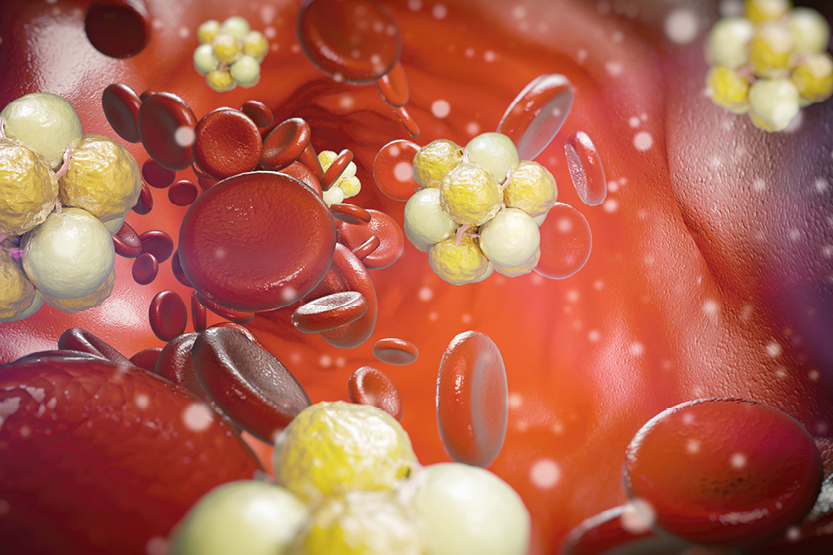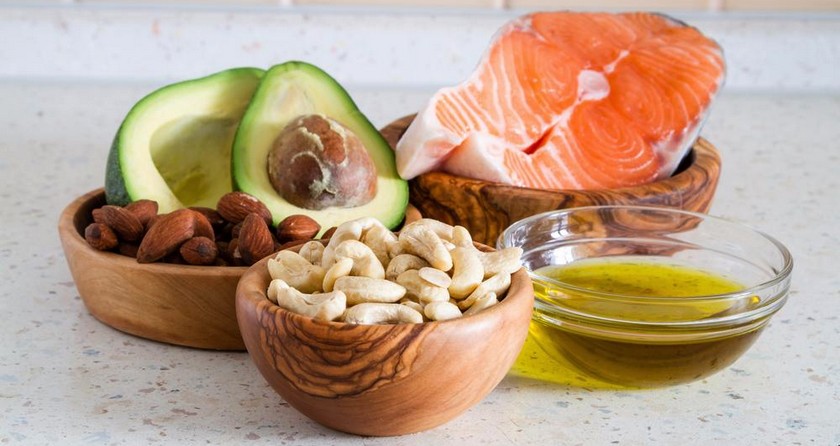In the XXI century, it became fancy to frighten lovers of delicious and abundant food of animal origin with cholesterol and the consequences of its high content in blood. Indeed, cholesterol plaques in blood vessels are the reason of heart attacks and ischemic strokes, when a “plaq” of cholesterol molecules clogs the lumen of large vessels and causes an acute lack of blood supply to the heart or brain. In order to avoid this, many refuse animal protein completely and switch to a vegetarian menu. However, doctors warn that a complete rejection of animal protein is harmful to the body, and the role of cholesterol in body is not so far simple.
Many have heard that cholesterol is conditionally divided into “bad” and “good”. Each of them is important for metabolism, but an overabundance in the body of the first just capable of causing atherosclerosis of blood vessels and its consequences in the form of heart attacks and strokes.
Cholesterol, also known as cholesterin, is a fat-like substance of the lipid class, that is, fats. It does not dissolve either in water or in blood, is a “building material” for cell membranes and participates in the synthesis of vitamin D, as well as female and male sex hormones.
Cholesterol becomes “bad” or “good” depending on which type of lipoproteins (plasma proteins) it carries through the blood vessels to the organs. Lipoproteins are of low and high density. If cholesterol is carried by low-density lipoproteins, it becomes “bad”, in scientific terms, low-density cholesterol (LDL). It is this cholesterol that adheres to the walls of blood vessels, forming atherosclerotic plaques. “Good” cholesterol, also known as high-density cholesterol (HDL), takes part in the construction of cells, collecting “bad” along the way and delivering it to the liver. Thus, only low-density cholesterol is dangerous, and high, on the contrary, is useful, since it neutralizes the negative effect of the first.

Photo: sirdsunveseliba.lv
It is possible to understand in advance that you have elevated cholesterol only by the results of a blood test. The safe level of “bad” cholesterol ranges from 2.2 and 4 mmol/l, “good” – from 1.42 and above mmol/l, total cholesterol – 5 or lower.
Cholesterol levels depend not only on eating habits, but also on weight, heredity, lifestyle, gender and age. High cholesterol is usually found in those who eat a lot of animal fats, smoke, move little. Cholesterol is also increased by such medications as beta-blockers (for hypertension and angina pectoris), medications for arrhythmia, diuretics, steroids, drugs for chemotherapy and HIV treatment.
To refuse the animal fat completely in order to lower cholesterol levels is irrational, but one must know which products exactly contains it in large quantities. These are:
- Fatty meat, salo (animal fat), bacon;
- Butter;
- Sausages;
- Full fat milk, heavy cream.
A little cholesterol is in egg’s yolk, lean meat and chicken, by products (liver, heart, lungs, etc.), seafood, fish. Cholesterol is totally absent in vegetable oils, but margarine which is made from vegetable oil, contains trans fats – a by-products of oil hydrogenation. Trans fats, which do not contain cholesterol, however are able to increase its level in blood. Trans fats can also be formed when frying in a large amount of vegetable oil, which is why it is so necessary to change it often. A lot of trans fats are contained in artificial cream substitutes, ice cream and pastries on margarine, fast food.

Photo: fitnessclubs.ru
It is useful to consume unsaturated fats: avocado, walnuts, pistachios, sea fatty fish and fish oil, sunflower seeds. Unsaturated fats make cell’s membranes more elastic and allow to consume more cholesterol, thus reducing its amount in the blood.
Doctors recommend monitoring the cholesterol level in the blood from the age of 40, if there are no aggravating factors in the form of hereditary diseases, excess weight, diabetes, problems with the cardiovascular system. In case of having such diseases, you should start checking your blood cholesterol level from an earlier age.
Thus, it is unreasonable to completely exclude animal proteins and fats from the diet, since cholesterol is necessary for the body for normal metabolism and construction of cells. Besides, the human body itself is able to produce it, it is formed by liver cells, in walls of intestines and adrenal glands. It is important to monitor its level in blood and check your nutrition, limiting the consumption of high density animal fats and trans fats.
Important! The publication is for informational purposes only.
Also read: